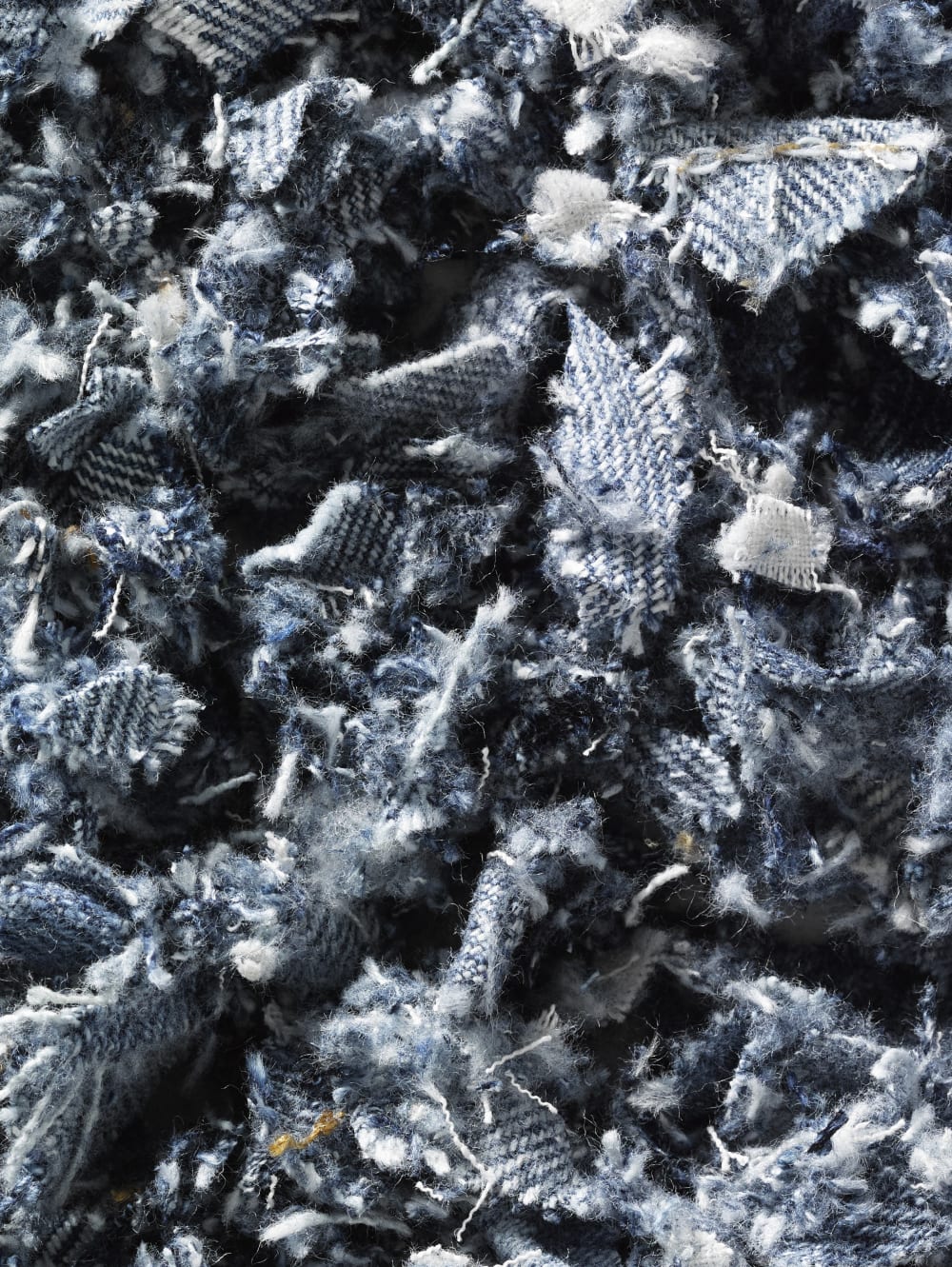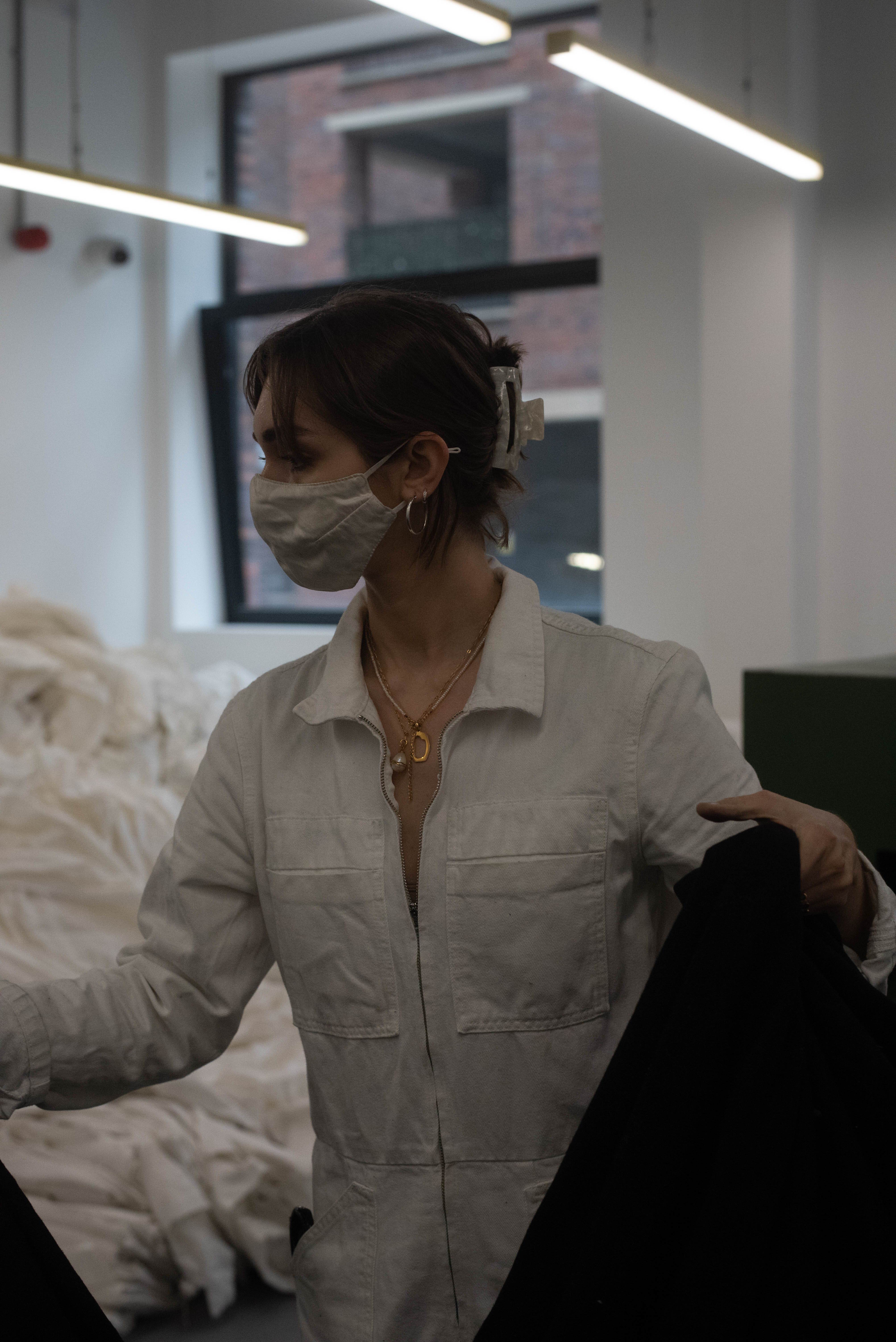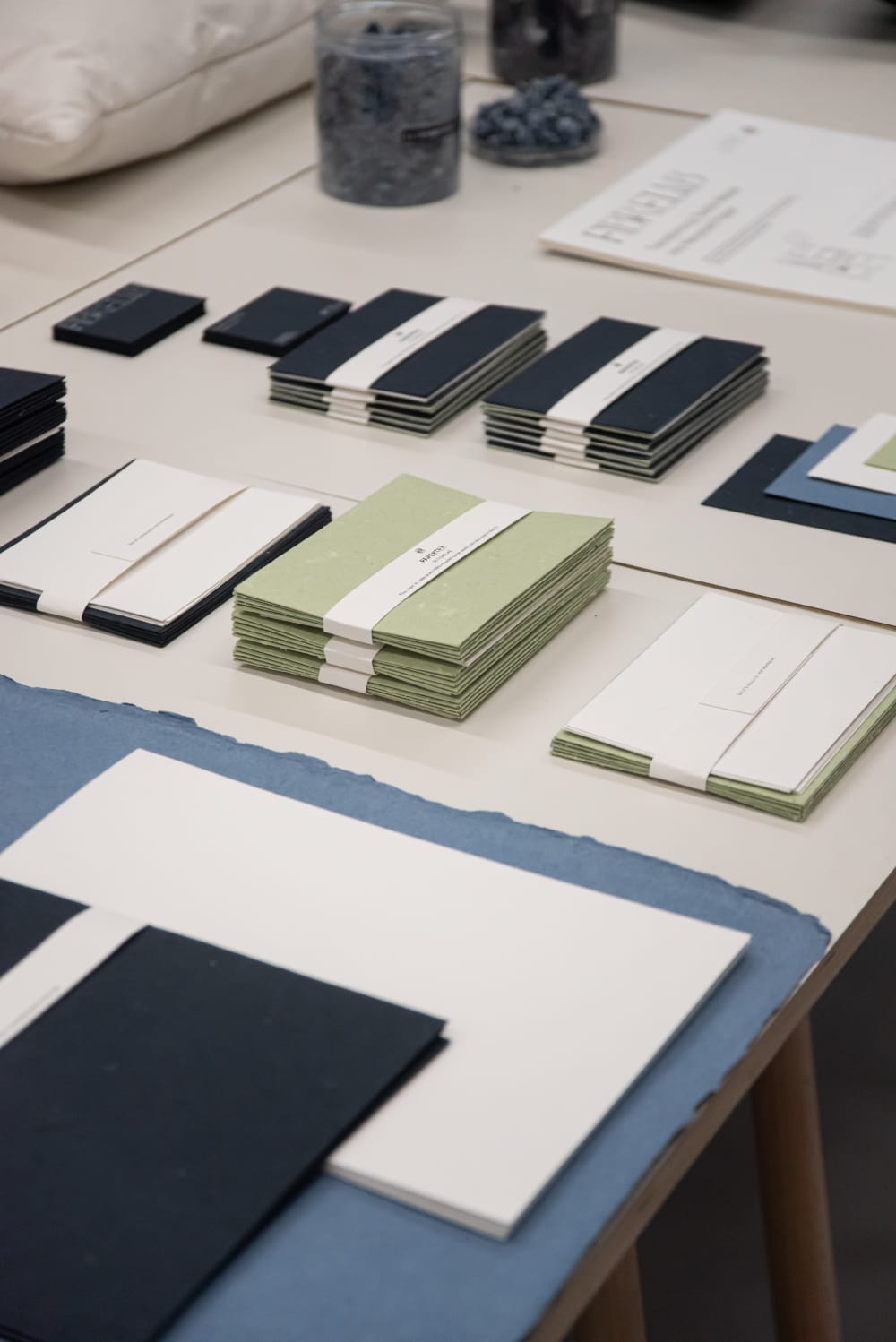
Discover: FibreLab

- Written byGiada Maestra
- Published date 04 July 2024

FibreLab is a small, sustainable business and a much broader project started in 2020 by Kae Katz. She graduated with an MA in Fashion Futures from London College of Fashion (LCF) and has been committed to researching sustainable practices ever since.
We caught up with her to discuss being a business owner and learning practical advice on embracing sustainability and being the change we want to see.
Tell us about yourself and background.
I'm originally from Chicago, where I did my undergraduate degree in fashion design. I’ve always had an interest in fashion and making clothing from a really young age. I was especially talented at sewing, so pursuing a degree in the field has always been a clear path for me. After graduating I moved to New York City, where I worked as a designer for a large ready to wear brand. A lot of young people, including myself, might be a bit naive about how the industry really works. The brand I worked for was selling millions of units and it was my job to reject fabrics if they were off standard, even if the full production was running already...It made me realise that the industry is so much worse than we think.
At that time people didn't really care about sustainability and I'm not sure whether the sentiment has changed much in NYC. I'm grateful for that experience because it made me want to continue my education and try to make a difference. I lived in NYC for about 5 years before coming to London to do my MA at London College of Fasion (LCF) and eventually starting FibreLab.
What did you study at UAL and how did your course help transform your ideas into action?
I studied MA Fashion Futures graduating in 2020. The course was instrumental in helping me discover the areas of sustainability that I wanted to work in. I had absolutely no intention of starting a business when I began the Master's. Through researching possible solutions, and wondering why no one was implementing them, I felt like I had to be the one bringing new ideas to life, and to be the change I wanted to see in the world.
During your time at UAL, what projects or initiatives did you focus on?
I was focused on exploring different sustainability-related initiatives and researching different technologies, systems, and referencing historical fiber cultivation processes. It was a holistic and exploratory phase that led to my dissertation. I did countless interviews with brands and industry leaders trying to uncover the biggest sustainability challenges for them and then went back to researching practical solutions. The entire dissertation was focused on critiquing existing methods and systems and laying the framework for truly sustainable practices. It was intended to be functional research for the real world. Of course, many other challenges have arisen since trying to put the theory into practice, but it really laid the foundation for our business ethos being incredibly strong.
Has sustainably always been a passion of yours?
Yes, but in kind of an indirect way. I don't think I really knew or even learned the term 'sustainability' until I was in my mid-20s. But I’ve always practiced sustainability. My mum loved to go thrifting (way before that was cool or trendy) she would mend my school uniforms, and we handed down clothes between cousins and friends. I became vegetarian at 15 and was making my own clothes during high school. My friends hung out in parks and forest preserves, playing music, instead of going to the mall. We were all quite 'sustainable' without really knowing it.
You’re Founder and Director of FibreLab, an award-winning textile recycling start-up based in east London, could you tell us more about it?
Absolutely, FibreLab emerged from my MA Fashion Futures course’s research. The research was about taking the hyper-local and regenerative practices of a rural-based Fibreshed and bringing them into an urban setting. We are a hyper-local textile shredding and recycling service for local businesses.
We started by working with fashion brands and garment manufactures to collect textile off-cuts and faulty samples - the type of textiles that are too small or damaged to be reused to donated. Since then, we've expanded into working with hotels, the entertainment industry and universities, to recycle all types of textile waste. Once we receive the materials we sort everything by fibre types and colour and then shred the textiles into a recycled fibre. This fibre can then be used to create new materials like PaperTex. So far, we've diverted over 5 tons of textile waste from landfill, incineration, or export in just 2 years.
As a small business, what challenges do you usually face, and do you have any advice you could offer to our alumni?
It is extremely challenging to be a small business that is trying to be sustainable as possible, plus innovating and developing new processes, materials and essentially a whole new business model. There is so much research that goes into everything we do, which needs to be supported. We've been really lucky to receive grant funding to enable that research which has helped quite a lot. But I'm sure every small business owner will tell you that managing cash flow can be challenging at times. My advice is to find the right funding streams that makes sense for your business. People often think they need to take on investors before they're truly ready and this can be risky. Start small, with the simplest iteration of your business and use that to gain validation and traction in the market. Typically, you will find out that the initial idea or concept needs to change quite a lot. It's important to figure that out before you invest in a studio space, equipment and other tools.
How did you discover the UAL Sustainability Alumni Network and what do you hope to bring to the upcoming alumni event as a speaker?
I think we were introduced through the YKK team which is really interesting considering that I'm quite involved in as alumni! I'm surprised I wasn't part of this before! I'm really looking forward to sharing my entrepreneurial journey in the hopes that others can learn something valuable or avoid some of the mistakes I made early on. I'm also keen to learn from other alumni and meet a new, like-minded group of people.What’s next for you and FibreLab?
We're leaning more into technology and taking on a big R&D project this year to develop custom, small-scale textile recycling machinery that will enable full fibre to fibre recycling. The goal is to sell these machines and all the knowledge that goes with it to people who are keen to start up their own FibreLabs/textile recycling hubs. The aim is to empower communities to have the tools and resources to recycle their own waste locally.


